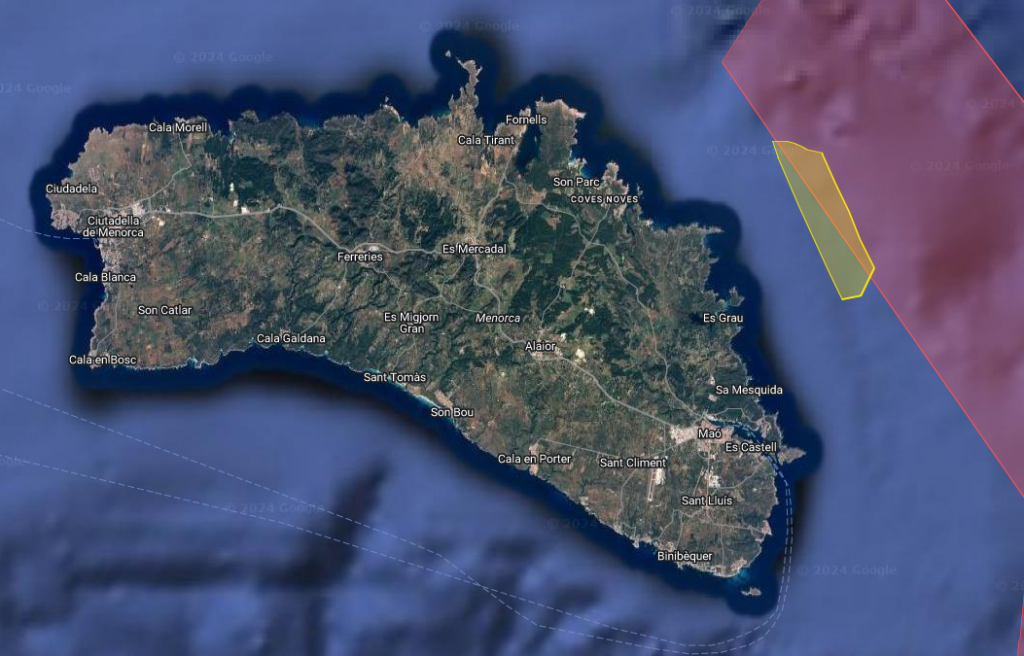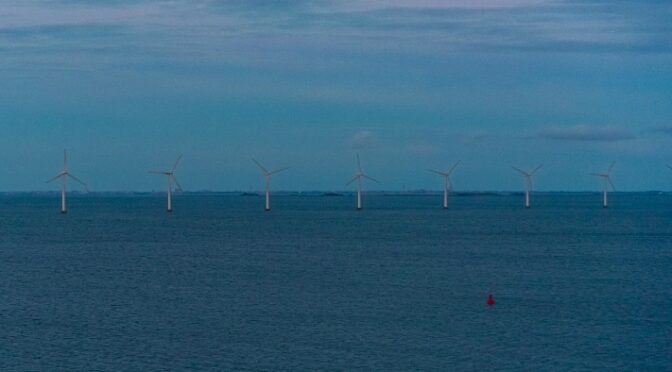Views: 1350
In February 2023, Spain approved the Maritime Spatial Plans (MSP) to regulate various marine activities across the country, including renewable energy installations. These plans designated two areas north of Menorca (LEBA 2 and LEBA 3) as the only spaces in the Balearic Islands where offshore wind projects could be developed.
This year, a French company introduced the “Gregal Offshore Wind Project,” planned for the LEBA 2 area. GOB Menorca has sent a report to the Ministry of Ecological Transition with several considerations.
What does the GREGAL offshore wind project propose?
The project is situated four kilometers from the coast, the closest area to Menorca designated by the MSP. It includes ten wind turbines, each 287 meters tall with 262-meter-wide blades, potentially changing the eastern landscape. However, abandoning imported fossil fuels requires accommodating certain land-use impacts.
Each wind turbine incorporates an 18 MW turbine on a floating platform. The ten platforms would be anchored to the seabed with massive chains, connected to the island by a buried submarine cable that surfaces near Macaret and continues to Mercadal’s substation, which would be expanded to handle up to 180 MW of electricity.
Since the project could generate much more electricity than Menorca consumes, a second Menorca-Mallorca cable would be needed to transfer surplus energy.
Environmental Impacts
The proposed area is rich in biodiversity, but little data exists on the impact of floating offshore wind farms on marine life. The following points should be considered:
- The proposed location overlaps a marine zone that scientists recommend protecting due to its rich benthic communities.

- LEBA 2 is surrounded by four Special Protection Areas for Birds (SPAs), an area of migration and feeding for many bird species, including the Balearic shearwater (Puffinus mauretanicus), one of Europe’s most endangered seabirds, which is endemic to the Balearic Islands.
- The site is within the marine portion of Menorca’s Biosphere Reserve, facing its core area.
Lack of Studies
Wind power is beneficial for diversifying Menorca’s renewable energy sources, currently dominated by solar photovoltaics. However, in this energy transition, we must prioritize reversible, low-impact projects. There is a lack of studies on the potential impact of offshore wind turbines in the Mediterranean on marine ecosystems, including vibrations that travel four times faster in water, electromagnetic fields, or coastal dynamics.
Due to this lack of studies, GOB has suggested following the Gulf of Roses example by conducting a pilot test with a single turbine and precise scientific monitoring to identify potential impacts and determine appropriate mitigation or compensation measures.
Redimensioning
Additionally, the need to transport surplus energy (at least to Mallorca, possibly to mainland Spain) may undermine the project’s environmental logic. A project scaled to Menorca’s real needs, with fewer and smaller turbines, could be placed further offshore, thus reducing the visual impact on the landscape.

